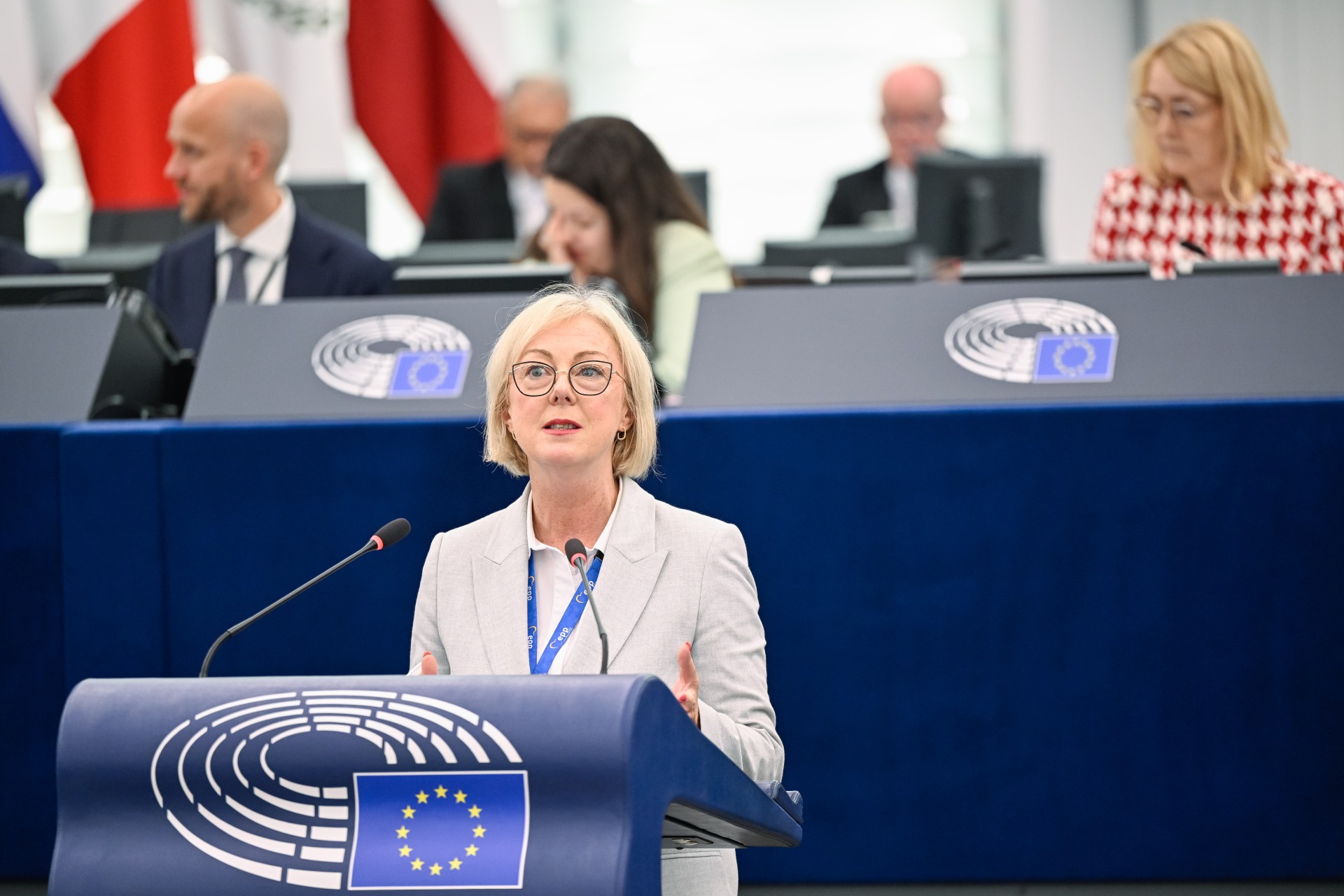Fine Gael MEP Regina Doherty is urging her European Parliament colleagues to back the EU’s new blueprint on online child safety when it comes before a vote in Strasbourg this week.
Doherty has played a central role in shaping the report, securing several major amendments that strengthen protections for children in the digital world.
The blueprint, approved by the Internal Market and Consumer Protection Committee last month, is the strongest plan ever put forward by the European Parliament to keep young
people safe online.
If adopted, it will be sent directly to the European Commission, where Doherty’s proposals will form the basis for future EU-wide laws.
Among the measures Regina Doherty secured are:
- A harmonised age limit that prevents under-16s from using social media without permission.
- Measures to effectively tackle addictive design, targeting the most harmful practices, with efforts to reduce features such as endless scrolling and autoplay.
- New protections to tackle the exploitation of children in influencer culture, including kidfluencers.
- Stronger safeguards for minors interacting with AI chatbots and digital companions.
Speaking ahead of the vote, Regina Doherty said:
“This week the European Parliament has a real opportunity to put children first. Many of the strongest protections in this plan came directly from the amendments I tabled after meeting parents, teachers and experts who are worried about what is happening online. These proposals will give families across Europe the protection they deserve.”
“I am encouraging colleagues from all political groups to vote in favour of this blueprint. It is practical, it is ambitious and it is urgently needed. The online world has become too dangerous for children and Europe must respond.”
“If we pass this report, they will be sent to the EU Commission who begin shaping binding EU-wide rules. This is a major step forward and I want to see the Parliament send a clear message that children’s safety cannot wait.”
If approved this week, the blueprint will become the foundation for new legislation to set high standards for online child protection across all EU member states.
